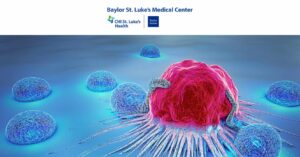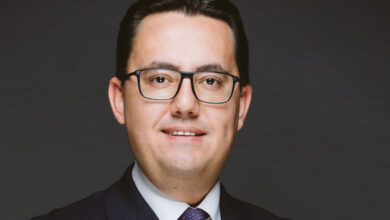Coronavirus (COVID-19): What People with Cancer Should Know

COVID-19 is a new virus that first arose in animals and was then transmitted to humans, first in China. These new viruses emerge occasionally and because the world is so connected by travel, they can spread rapidly from one place to another. Now that COVID-19 is here, what should you and your health care workers be doing?
Are Cancer Patients at Higher Risk?
All humans are at risk of infection with this virus, even children, and over 50% of patients infected in the U.S. so far are between 18 and 49 years old. Older people above 65 or 70 are at somewhat higher risk of infection and have a higher risk of more severe infection and death especially if they have underlying chronic illness such as lung or heart disease, diabetes or other significant illnesses. Some cancer patients, but not all, are at higher risk.
Cancer patients on active treatments with chemotherapy or other treatments that lower the immune system are at higher risk. Some other cancer patients are at higher risk because of the type of cancer that they have because the cancer itself impacts their immune system. Your doctor can let you know if you have one of those types of cancer like leukemia or lymphoma.
Cancer survivors who are well past their active treatment and don’t have active cancer are probably not at increased risk unless their age places them in a higher risk group. Breast or prostate cancer patients on therapy to block estrogen or androgens are not at higher risk other than that related to age.
Most patients with the infection have mild or moderate symptoms like a bad cold or flu but others get very sick and can die. The goal is to reduce the number of infected people in order to reduce the chance of infection in those destined to have a severe case.
It is becoming evident that some infected individuals who don’t have symptoms can still infect others inadvertently and thus the need for everyone to minimize contact with others.
What Can I Do To Reduce My Chance of Getting the COVID-19 Infection?
Social distancing, meaning avoid contact with others as much as possible. Stay home except when you need to go to the grocery store or pharmacy. Minimize or don’t allow visitors to your home. If you must encounter another person, stay six feet away and avoid those completely who claim to just have a “cold.”
Work remotely at home unless your work is deemed essential and you can’t do it at home.
Wash your hands frequently with soap and water for at least 20 seconds, which is very effective especially when you come back into your home from the store or work or after handling packages, grocery bags or other items. If you can find hand sanitizer, carry it with you when out and use frequently. Don’t forget to clean areas in your car like the steering wheel, etc.
Avoid touching eyes, nose, and mouth without first washing hands.
Cover your mouth/nose with a tissue when you sneeze or cough, or cough into the inside of your bent elbow to prevent spreading germs.
What Should You Do If You Feel Sick?
Stay at home and contact your doctor if you have a fever, cough or other symptoms of a cold or flu.
Do not go to your doctors office or the emergency room.
If you are very sick with fever, cough and shortness of breath, call your doctor immediately and if you have to go to the emergency room, let them know ahead of time so they can prepare.
Should You Cancel Your Clinic Visit?
- Keep your appointments if you are on treatment. You should arrive 10-15 minutes early to do the necessary screening on entry to the building.
- Call for an appointment if you are not on treatment but have a problem.
- Clinic personnel will be contacting those with routine scheduled appointments to determine if it can be rescheduled or handled by telemedicine, which Baylor has developed as an alternative.
- New patients will continue to be scheduled as before. Please notify the staff if you have symptoms, have recently traveled to a high-risk location or have had contact with a sick person.
- Non-urgent surgeries in the hospital will be rescheduled if the delay will not impact the patient’s health.
- Cancer surgery or other surgery that is necessary to maintain health will continue to be scheduled as usual if deemed safe at that time.
- Food service is limited to grab and go at all facilities and sitting in the snack areas or cafeteria are not permitted.
What Are Baylor St. Luke’s Medical Center And Other Hospitals Doing to Protect Staff and Patients?
- We are taking extra precautions to protect our patients and staff.
- We are screening all patients and employees at the front door of the hospital for symptoms, exposures, etc.
- We are restricting the number of people allowed to accompany a patient to clinic visits or hospital.
What Else Can You Do To Stay Healthy?
- Keep busy at home, move around and exercise.
- Take walks outside avoiding crowded areas.
- Reduce stress if you can with meditation, reading, watching a movie and exercise.
- Use social media to keep in contact with others.
- Eat healthy meals and drink plenty of fluids. You can’t get infected from water you drink.
- Act as if you have the virus even if you don’t think you do to avoid transmitting it to others inadvertently and to avoid others from transmitting it to you.
Where Can You Get Additional Information?
















